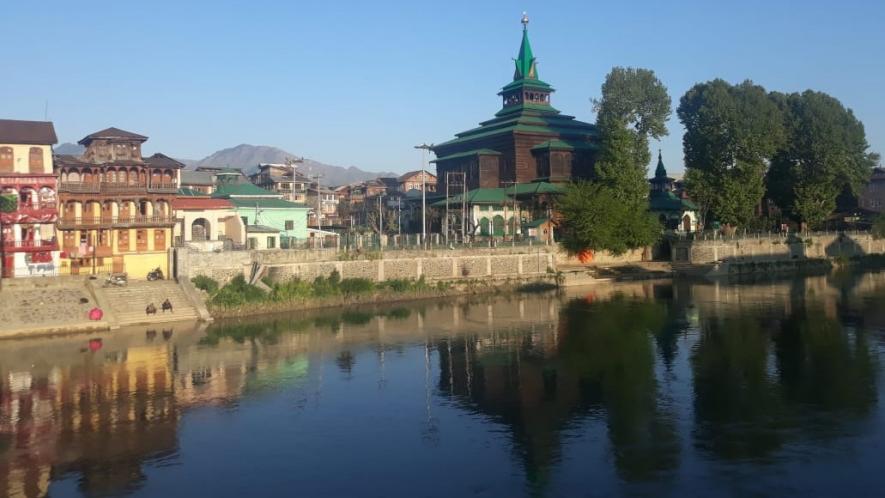BJP-led J&K Waqf Board Disbands Management Committees of Shrines

The Khanqah-e-Moula mosque in the Old City of Srinagar.
Srinagar: The Jammu and Kashmir Waqf Board has disbanded the local management committees of shrines and other Waqf properties in the Union Territory.
According to an order dated December 17 issued by the Waqf Board chief executive officer, the Board has taken control of all the shrines, including other assets and properties under the Muslim specified Waqf in J&K.
“It is hereby notified that all the Wakf/Auqaf Committees shall be deemed as void ab initio throughout J&K and any kind of interference by such local Waqf Committees be reckoned illegal and to invite action under the law on all the Waqf Units managed by J&K Waqf Board,” the order read. Any communication or decision of any such local committee at any Waqf unit may “not be entertained”, it added.
The Board has argued that the order was issued to ensure a smooth and systematic management system at all the Waqf units throughout the region. The move is, however, being seen as part of a series of changes brought since BJP leader Darakshan Andrabi was appointed the Board’s chairperson in March.
The BJP has been accused of deliberate interference in the religious institutions of the region. “The BJP is disempowering people through such orders,” Jammu and Kashmir National Conference (JKNC) state spokesperson Imran Nabi Dar told Newsclick.
“The last remnant of organisation and association of Muslims has been ordered to be dismantled. This disempowerment of Kashmiris is clearly on top of the list of the BJP government. Meddling with religion and culture has become a propaganda tool to garner votes outside,” Dar alleged.
Hurriyat Conference, led by Mirwaiz Umar Farooq—who continues to be under house arrest since 2019—also termed the decision as another move that “further marginalises the already marginalised Kashmiri Muslim institutions”. The Waqf order, however, does not extend to the Auqaf Committee, headed by Farooq, which manages Kashmir’s Jamia Masjid.
The Board’s previous orders, including the ban on Dastar Bandi (turban-tying) or felicitation of people, particularly political leaders at all shrines and religious places governed by it, have been criticised. The order was issued in September after the Board claimed that it received complaints regarding “unethical use” of the platform to “appease influential persons or political leaders”.
In October, regional political parties, including the Peoples Democratic Party (PDP) and the Hurriyat, had opposed the Boards’ plan to build a cancer hospital at Srinagar’s Eidgah with many alleging that it was a move to occupy “Muslim spaces” in the Valley.
Get the latest reports & analysis with people's perspective on Protests, movements & deep analytical videos, discussions of the current affairs in your Telegram app. Subscribe to NewsClick's Telegram channel & get Real-Time updates on stories, as they get published on our website.
























